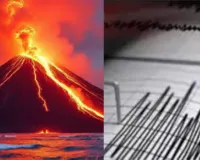The India-Canada Rift: Exposing Western Double Standards and India's Pivot to a Multipolar World
Digital Desk

In the crisp autumn of 2025, the diplomatic chill between India and Canada shows no signs of thawing. What started as a shocking accusation in 2023 has snowballed into a full-blown crisis, laying bare what many see as the glaring hypocrisy of Western democracies. Canada, under Prime Minister Justin Trudeau, pointed fingers at India for the extrajudicial killing of Hardeep Singh Nijjar, a Khalistani separatist gunned down in British Columbia.
India dismissed these claims as baseless, retaliating by expelling diplomats and slamming Ottawa for harboring extremists. But beneath the headlines lies a deeper story: how Western nations preach human rights and democracy while ignoring their own murky interventions, ultimately nudging India toward alliances like BRICS.
Picture this: Canada, a self-proclaimed champion of free speech, blocks a diaspora news outlet like Australia Today for covering India's External Affairs Minister S. Jaishankar's critiques of anti-India activities on Canadian soil. Jaishankar didn't mince words, calling out this "hypocrisy" where pro-India voices are silenced, yet Khalistani militants operate freely, vandalizing temples and threatening diplomats. This isn't isolated—it's part of a pattern. Trudeau's government tolerates Sikh separatists for electoral gains in Sikh-heavy ridings, turning Canada into a safe haven for terror finance and extremism, reminiscent of the 1985 Air India bombing that killed 329 people. Critics argue this makes Canada akin to a "state sponsor of terror," a label India could slap on Ottawa to highlight the double standards.
The hypocrisy extends beyond Canada. The U.S. and EU lecture India on values while cozying up for strategic gains against China. Remember the U.S.-led "values-based alliances"? They praise India's democracy to rope it into anti-China pacts but turn a blind eye to alleged human rights issues when convenient. Take Russian oil: Washington threatens tariffs on India for buying discounted crude amid the Ukraine war, yet the EU imported record LNG from Russia in 2024, and the U.S. keeps trading in uranium and chemicals. India's Foreign Ministry fired back, calling it "unjustified" bullying that hurts Indian dignity. As one BJP leader quipped, quoting Kissinger: "To be a friend of America is fatal."
This selective outrage isn't new. Western powers have a history of intervening abroad—think drone strikes or regime changes—while condemning others for similar actions. In the India-Canada spat, the U.S. awkwardly mediates, embarrassed by the cracks in its alliances. For India, it's a wake-up call. New Delhi, already a G20 heavyweight, is pivoting toward multipolar groupings. BRICS, with Brazil, Russia, India, China, and South Africa, offers a counterweight to Western dominance. India's ties with Moscow remain strong, defying sanctions, and collaborations in SCO (Shanghai Cooperation Organization) deepen. As tensions simmer, India might even skip the 2025 G7 summit under Canada's presidency, signaling a refusal to play by hypocritical rules.
The fallout? Strained trade, diaspora woes, and a reshaped global order. India's economy, booming with a young workforce, doesn't need lectures—it needs fair play. This crisis isn't just about two nations; it's a mirror to the West's inconsistencies, pushing emerging powers like India to forge their own path. In a world craving balance, BRICS might just be the future, leaving Western alliances scrambling to catch up.


20.png)

15.png)


1.jpg)



